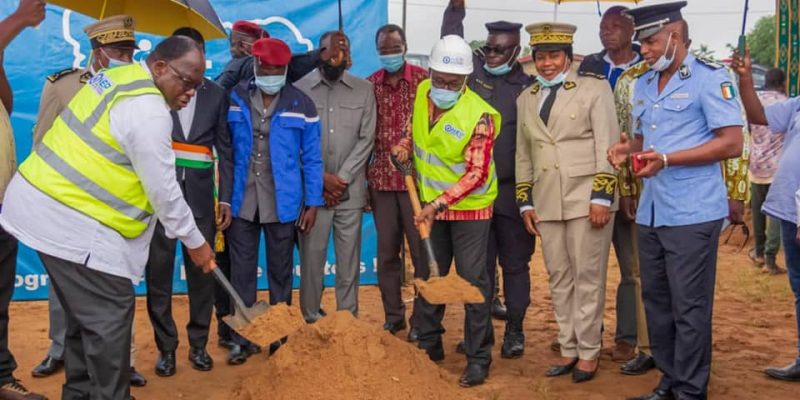A drinking water supply system (DWSS) should provide 6,864 m3 of water per day to the populations of the South-Comoé region of Ivory Coast. On July 4th, 2021, the Ivorian Minister of Hydraulics, Laurent Tchagba, launched the construction of new facilities as part of the project to supply drinking water to Maféré and 14 surrounding villages.
The construction of new drinking water supply facilities in South Comoé will last six months. The work will be carried out in Mouyassué and Maféré, as part of phases 1 and 2 of the project to strengthen the supply of drinking water to Maféré, Mouyassué, Anvo, Kassikro, Sanhouman, Kongodjan, Seydoukro, Manouankro, V5, V6, V8, Bodjonou, Akakro and Essoinkro.
The project involves the construction and equipping of two large diameter boreholes. The installations will pump water from the water table using two 60 kVa generators. The water will be stored in three reinforced concrete water towers, one of 500 m3 in Maféré and two towers of 80 m3 each in Mouyassué and Kongodjan. Drinking water will be distributed to the population via 40 km of pipes.
Read Also – DRINKING WATER: Major African programmes that are making a difference locally
A total of 6,864 m3 of water will be produced each day thanks to the future installations. This should help to improve the current drinking water coverage, estimated at 53% in Maféré and the surrounding localities, according to the Ivorian Ministry of Hydraulics.
The government of Ivory Coast is financing the construction of the new drinking water supply system to the tune of 3.436 billion CFA francs, or more than 5.2 million euros. The project to supply drinking water to Maféré and 14 surrounding villages is part of the “Water for All” programme. Through this programme, the Ivorian government hopes to achieve universal access to drinking water by 2030. “To date, 83% of the Ivorian population has access to drinking water in urban areas, compared to 73% in rural areas,” says Minister Laurent Tchagba.
Inès Magoum




